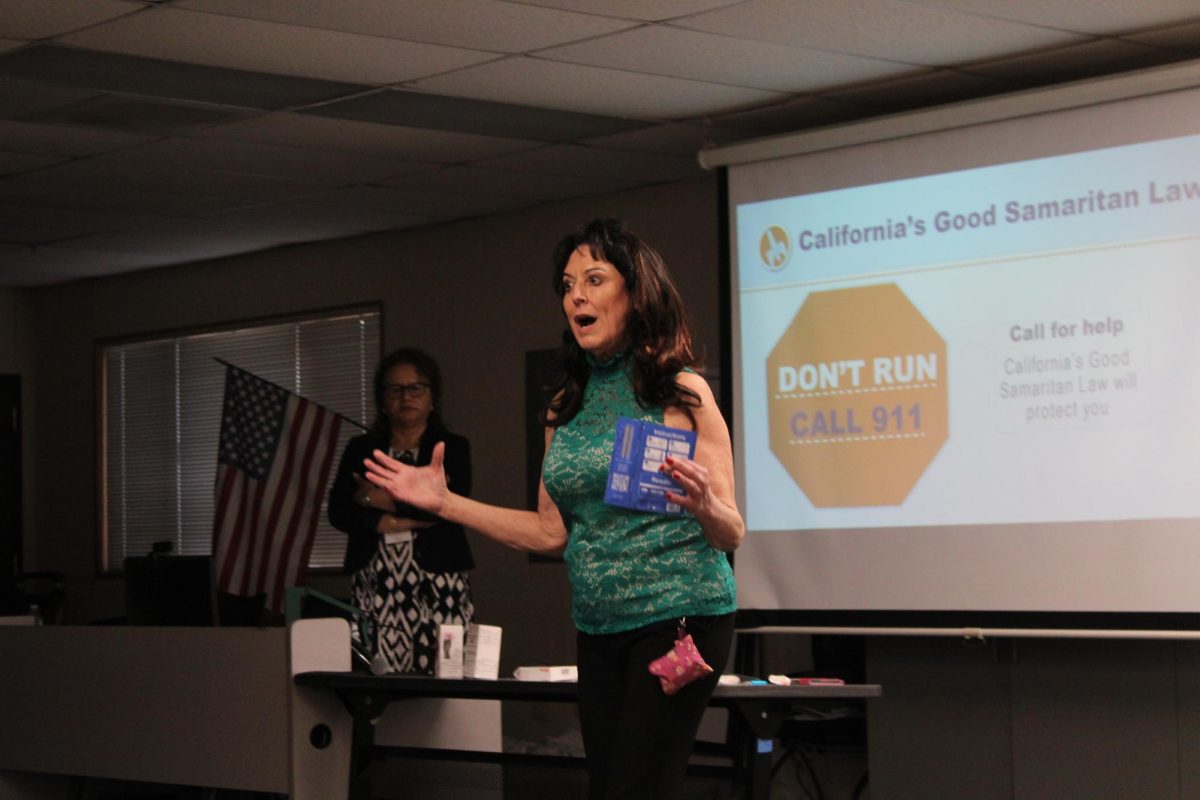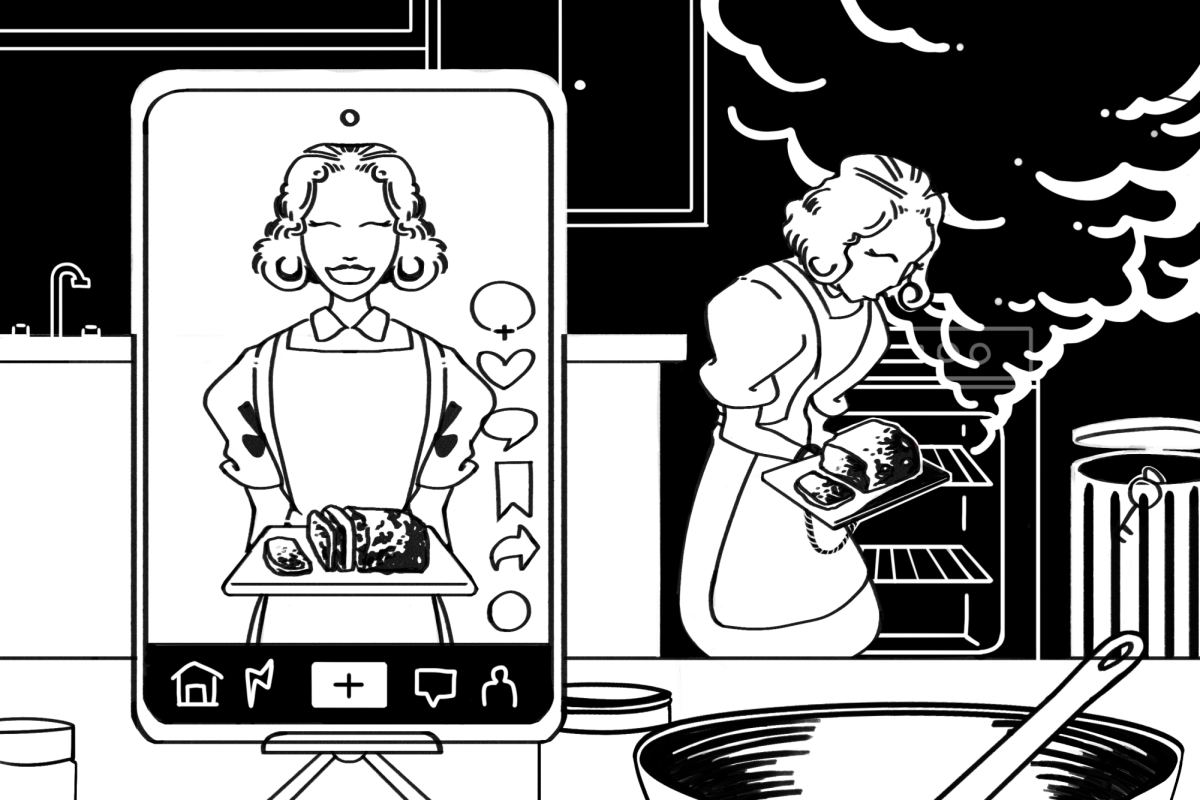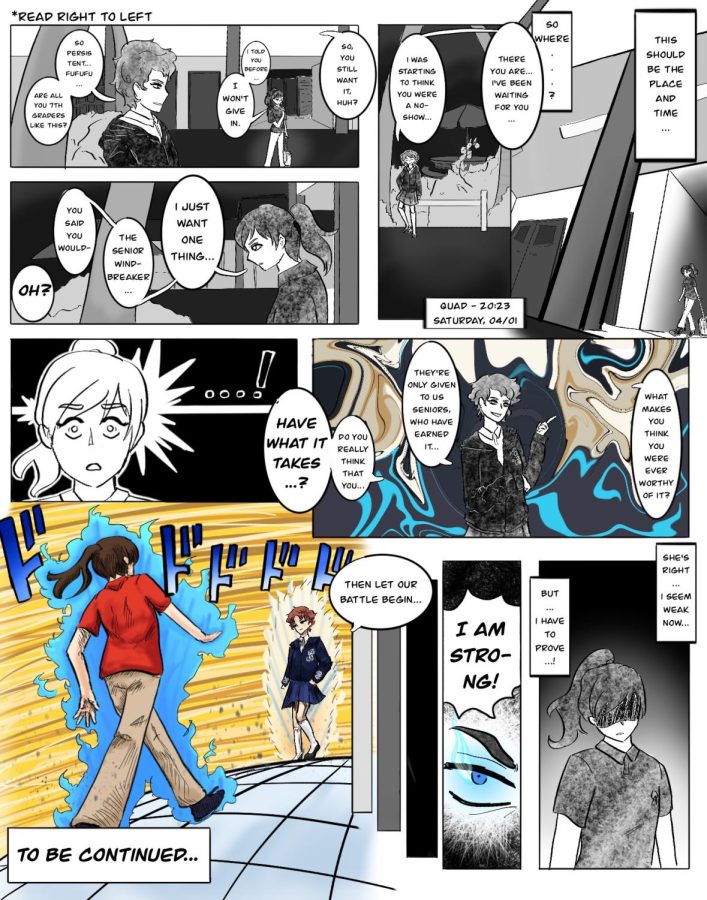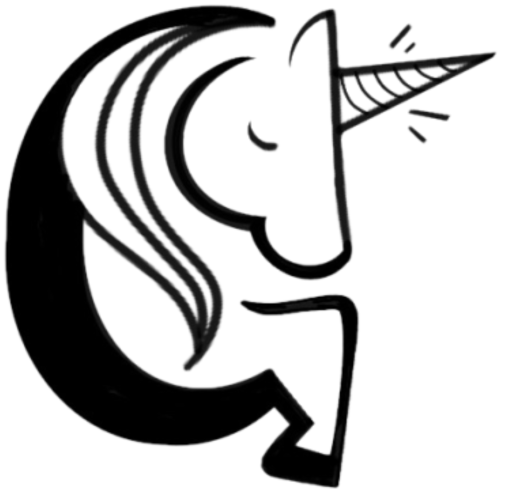Two days ago Oxford Academy witnessed the rise of three teachers: Mrs. Diana Major, Mrs. Marissa Valgan, and Ms. Sharon Ran. Together, this terrifying trio declared their rule over the school, prowling the halls with red matching outfits.
Ruler of the performing arts building, Mrs. Major displays an enthusiastic love of orchestral music, her favorite composer being Tchaikovsky. Inversely she cannot stand the noise of vapid pop hits blaring in the quad before school and during lunch. She has banned all modern pop from being played on campus, confiscating the phones of anyone whose Spotify playlists contain a hint of pop.
“It’s a good thing I use Apple Music,” said seventh grader Prim Tare. “But Mrs. Major still targeted me. It’s not my fault I printed out a couple hundred too many copies of our sheet music.”
Regal Mrs. Valgan of the English building, unafraid to show her disdain towards her students’ errors, weaponizes her beloved sarcastic nature and affinity for Shakespearean insults to take down her opponents. Many wary students tread lightly around Mrs. Valgan to avoid sending her on a lengthy tirade.
“I told Mrs. Valgan that ‘The Pearl’ by John Steinbeck was about greed,” said eighth grader Spark Ngo. “She proceeded to roast me in front of the entire classroom. I now attend therapy three times a week.”
Finally, Ms. Ran, the queen bee of the science floor in the same vein as
Regina George from “Mean Girls,” keeps her chemistry class lively with witty remarks to students, though many are frightened by some comments. A student raised concerns about her knowledge of the buoyancy of a human body and her suggested method of hiding one. Many passed it off as a joke, but the student has not been seen for two weeks. The attendance office blames COVID-19 for the mysterious disappearance.
The trio, nicknamed as the DMS (Diana, Marissa, Sharon), established a ranking system for popularity and reliability based on Ms. Ran’s favorite unit: acids and bases. The DMS gives students scores from zero to 14, corresponding to the pH scale. The higher the score, the more “basic” someone is, meaning a low rank. Lower scores make someone more “acidic,” denoting a higher rank. The DMS announce their rank by giving a student a piece of colored litmus paper, showing their rank on the pH scale.
A student who received a score of 12 said, “I think it’s because I got a thirty percent plagiarism score on turnitin.com for my essay in Mrs. Valgan’s class last week. Did I use too many direct quotes?”
Another student, who was given a score of four, said, “I just girlboss like that. Slay!” Yesterday, one of our reporters at The Damut attempted to interview the DMS on their new ranking system. What treatment would those who scored acidic receive? What punishment would come to those who were basic? “On a scale of zero to 14, you’re a 10, because you’re basic,” said Ms. Ran before turning our reporter To this day, we remain fearfully away with their own litmus paper. oblivious of the ranks’ consequences.















































